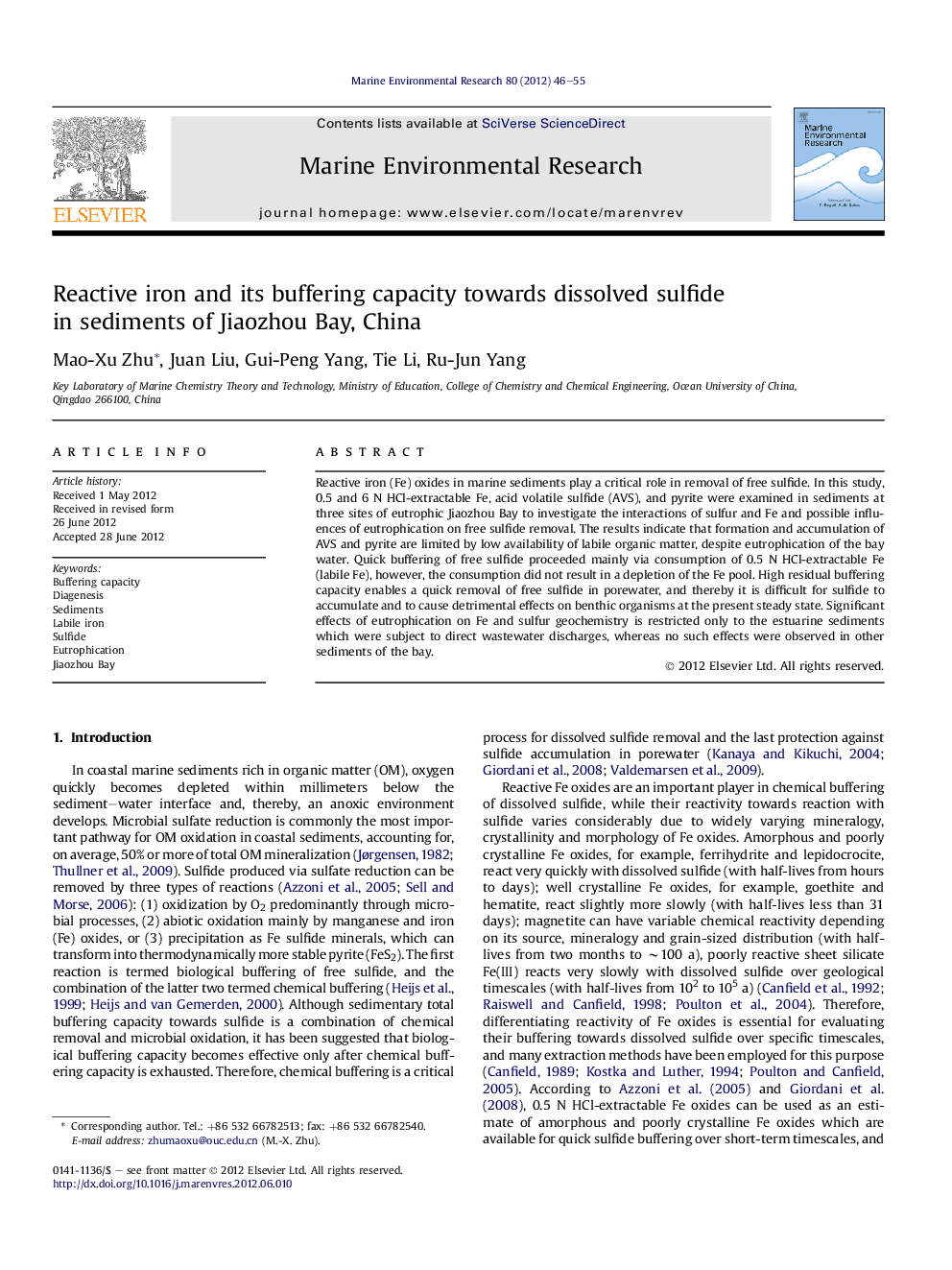| Article ID | Journal | Published Year | Pages | File Type |
|---|---|---|---|---|
| 4550927 | Marine Environmental Research | 2012 | 10 Pages |
Reactive iron (Fe) oxides in marine sediments play a critical role in removal of free sulfide. In this study, 0.5 and 6 N HCl-extractable Fe, acid volatile sulfide (AVS), and pyrite were examined in sediments at three sites of eutrophic Jiaozhou Bay to investigate the interactions of sulfur and Fe and possible influences of eutrophication on free sulfide removal. The results indicate that formation and accumulation of AVS and pyrite are limited by low availability of labile organic matter, despite eutrophication of the bay water. Quick buffering of free sulfide proceeded mainly via consumption of 0.5 N HCl-extractable Fe (labile Fe), however, the consumption did not result in a depletion of the Fe pool. High residual buffering capacity enables a quick removal of free sulfide in porewater, and thereby it is difficult for sulfide to accumulate and to cause detrimental effects on benthic organisms at the present steady state. Significant effects of eutrophication on Fe and sulfur geochemistry is restricted only to the estuarine sediments which were subject to direct wastewater discharges, whereas no such effects were observed in other sediments of the bay.
► Reactive Fe and reduced S in the sediments were examined by extraction methods. ► Organic matter and labile Fe are critical control on Fe and S cycle in the sediments. ► The impact of eutrophication on S geochemistry is limited to estuarine sediments. ► High buffering capacity ensures a quick removal of dissolved sulfide.
